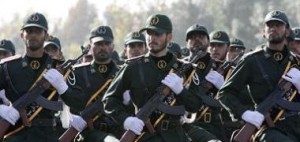 Western members of the U.N. Security Council blasted Iran on Thursday for providing Syrian President Bashar al-Assad with weapons to help him crush an 18-month-long uprising by rebels determined to topple his government.
Western members of the U.N. Security Council blasted Iran on Thursday for providing Syrian President Bashar al-Assad with weapons to help him crush an 18-month-long uprising by rebels determined to topple his government.
“Iran’s arms exports to the murderous Assad regime in Syria are of particular concern,” U.S. Ambassador to the United Nations Susan Rice told the 15-nation council during a meeting on the world body’s Iran sanctions regime.
She cited a May 2012 report by the U.N. panel of experts that monitors compliance with four rounds of Security Council sanctions against Tehran. That report concluded Syria was now the “central party to illicit Iranian arms transfers.”
Tehran is forbidden from selling weapons under a U.N. arms embargo, which is part of broader sanctions against Iran over its nuclear program. Tehran rejects allegations from Western powers and their allies that it is seeking atomic weapons and has defied council demands that it halt nuclear enrichment.
Although she did not mention Iraq by name, Rice appeared to have Baghdad in mind when she emphasized the obligation of Iran’s neighbors to prevent illegal arms shipments across their territory.
“States in the region must therefore work together and redouble their efforts to deny, inspect and seize illicit Iranian shipments, including transfers via air corridors,” she said.
Iraq on Thursday denied a Western intelligence report that said Iranian aircraft had flown weapons and military personnel over Iraqi airspace to Syria to help Assad.
The allegation, reported by Reuters on Wednesday, said arms transfers were organized by Iran’s Islamic Revolutionary Guard Corps.
Although charges that Iraq has allowed Iran to send arms to Syria are not new, the intelligence report said the extent of such shipments is far greater and more systematic than has been publicly acknowledged, thanks to a deal between senior Iraqi and Iranian officials.
UAE REQUESTS HELP IN IRAN INVESTIGATION
British Ambassador Mark Lyall Grant echoed Rice’s condemnation of arms transfers to Syria.
“This is unacceptable and it must stop,” he said. “It is in stark contrast to the will of the Syrian people and a reminder of Iran’s hypocrisy in claiming to support freedom in the Arab world.”
German Ambassador Peter Wittig said worries about Iranian support for Assad “are aggravated by unsettling recent reports indicating that Iran is shipping arms to Syria under a humanitarian pretext.”
Neither Russia nor China, which have joined forces in vetoing three resolutions that would have condemned Assad’s assault on the opposition, mentioned the allegations about arms shipments to Syria.
Western council members also complained that Iran is pressing ahead with its nuclear program and has shown no interest in taking steps that would reduce concerns that it is amassing the capability to produce atomic weapons.
French Ambassador Gerard Araud said the five permanent Security Council members and Germany had spent “hundreds of hours” negotiating with Iran to resolve the stand-off with Tehran, but without success.
The chairman of the Security Council’s Iran sanctions committee, Colombian Ambassador Nestor Osorio, said he continued to receive reports about how countries were working to implement the four rounds of U.N. sanctions against Iran.
He said the United Arab Emirates had asked for the U.N. panel of experts to help it investigate items it confiscated en route to Iran which it reported to the sanctions committee on May 21.
Earlier this week diplomats told Reuters that UAE and Bahrain were among the countries that had notified the sanctions committee of confiscations and were investigating possible sanctions violations.
The emirate Dubai has long been one of Iran’s main export-import hubs because of its busy port and position as a financial center. UAE remains one of its main trading partners.
There were no details available on the items confiscated by UAE authorities, but the three items Bahrain intercepted included carbon fiber, a dual-use material that the U.N. panel of experts identified in May as key for further development of Iran’s uranium enrichment centrifuge program.
Reuters

Leave a Reply
You must be logged in to post a comment.